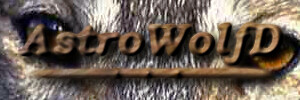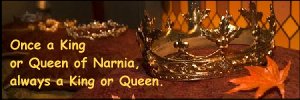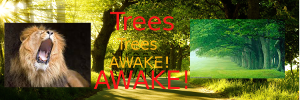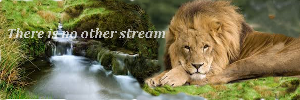Yay new forum! So as a fan of both series I was wondering if anyone else has read both and if like me when they read one they think of the other.  Has anyone else noticed any similarities or parallels? Differences? What books do you think are most similar and different to each other? What conclusions can you draw from any similarities and differences?
Has anyone else noticed any similarities or parallels? Differences? What books do you think are most similar and different to each other? What conclusions can you draw from any similarities and differences?
-Perhaps the most obvious is the Christian allegories (edit: symbolism is probably a better word or themes maybe?  /edit ) that run through both, also the traveling to another world theme is relevant to all the books save The Horse and his Boy (all though I guess Shasta did more or less travel into Narnia
/edit ) that run through both, also the traveling to another world theme is relevant to all the books save The Horse and his Boy (all though I guess Shasta did more or less travel into Narnia  ) and That Hideous Strength. But something else I noticed is neither series keeps the same main character throughout... I wonder do you think this suggests something about Lewis' writing style or imagination?
) and That Hideous Strength. But something else I noticed is neither series keeps the same main character throughout... I wonder do you think this suggests something about Lewis' writing style or imagination? 
"The mountains are calling and I must go, and I will work on while I can, studying incessantly." -John Muir
"Be cunning, and full of tricks, and your people will never be destroyed." -Richard Adams, Watership Down
*wanders in briefly to say that he is very much looking forward to discovering said similarities and parallels when he tackles the Space Trilogy  . I will be heading back here with my findings
. I will be heading back here with my findings  .
.

Sig by the Wonderful wolfloversk
AROOOOOOO!!!
Yay new forum! So as a fan of both series I was wondering if anyone else has read both and if like me when they read one they think of the other.
Has anyone else noticed any similarities or parallels?
-Perhaps the most obvious is the Christian allegories that run through both..
Firstly, there are no allegories in either series.
There are certainly aspects of both that will remind Christians of their faith, the Bible, and their lives as Christians. I see them as illustrations, Jack Lewis saw the Narnia books as supposals. (you can find lots more about this so I won't go on at length) But they are not allegories.
Secondly, I have a few pencil markings in the margins of my books, noting parallels between events , choices, decisions, personal growth etc, in the two sets 
The Space trilogy was written a lot earlier than Narnia, and it was written for adults. At that stage Jack had no plan to write for children, and he had not yet had the experience of young evacuees in his home. Since he wrote both series with the same world view, the same beliefs etc, it is not a big surprise that the same themes come up, expressed differently.
I also like that in neither book series is there any Christian preaching, or even anyone going to church. That Hideous Strength has a few references to religion but nothing major. Even when back in England, nobody in the Narnia series talks about God.
There, shining in the sunrise, larger than they had seen him before, shaking his mane (for it had apparently grown again) stood Aslan himself.
"...when a willing victim who had committed no treachery was killed in a traitor's stead, the Table would crack and Death itself would start working backwards."
 I look forward to your thoughts Astro
I look forward to your thoughts Astro 
*edits her opening post and expands her question 
Also, I was wondering if the differences in the Christian allegories or the plot may suggest how Lewis' faith changed as a whole? Too me Aslan seems much more directly involved in Narnia than Maleldil did in the Space Trilogy (he seemed to work more through the Oyéresu whereas Aslan actually showed up in Narnia and physically intervened). Since Narnia was written later do you think this suggests anything about how his faith may have grown or changed, or were the differences due to the differences in the age of the audience they were intended for, or were they purely creative?
*edit simulpost with coracle...
Yeah I actually have read that about allegory/supposal... I was just being careless with my wording  Did he ever make the same correction with the Space Trilogy though? I don't doubt it, I'm just curious... never ran into one
Did he ever make the same correction with the Space Trilogy though? I don't doubt it, I'm just curious... never ran into one 
"The mountains are calling and I must go, and I will work on while I can, studying incessantly." -John Muir
"Be cunning, and full of tricks, and your people will never be destroyed." -Richard Adams, Watership Down
I don't recall his ever explaining it to adults - perhaps because that series was viewed differently and people weren't seeking for symbols.
There, shining in the sunrise, larger than they had seen him before, shaking his mane (for it had apparently grown again) stood Aslan himself.
"...when a willing victim who had committed no treachery was killed in a traitor's stead, the Table would crack and Death itself would start working backwards."
The section of the Space Trilogy that reminds me most of Narnia, is the part of Out of the Silent Planet where Ransom stays with the Hrossa. From the description, I think they must look a lot like otters - and they live by the river and go hunting and fishing there.
They are animals, not humans - but they are intelligent, sentient beings, and he stays with them long enough to learn a fair amount of their language.
He also goes hunting with them. He even finds that they have "cattle" - some animal that they keep and which gives them milk, which they make cheese from.
And he finds that they have a concept of life after death - that's when they go back to Maleldil, who created them. An interesting detail is that they know in advance when they will be called back - although it's possible they may get killed on a hunt before the appointed date.
The parallell to the Talking Beasts of Narnia is clear, although there are also differences between the two groups. The Narnians know no more about the timing of their death than we do in our world.

(avi artwork by Henning Janssen)
Must admit, I've read the Space Trilogy (or rather, the first two books of it) only once, and that was when I was about 10, nearly 40 years ago; I decided to tackle them because I'd enjoyed Narnia so much, but I really hated them at the time, because they were nothing like what I considered to be "real" science-fiction. For one thing, they had no real science in them, unlike, say, Isaac Asimov's books. So I suppose it's only fair that I give them another chance, as an adult.
I remember reading something about there having been a wager of some kind between Lewis and Tolkien; they flipped a coin and decided that Lewis would write about "space travel" and Tolkien about "time travel". At least Lewis came up with some legitimate space travel stories. Tolkien's "time travel" attempt appeared to have been merely a "wrapper" in which two characters from the Middle Ages found themselves in his already-created Middle Earth. That really seemed like cheating to me.
I've read both series too, though I hadn't known the order they were written in. One difference between them that I noticed is that while the individual stories don't feel like the same world or universe at all, Narnia feels like a complete whole, even when you see different places and times.
I like wolfloversk's point about how involved Maleldil and Aslan are. At the same time though, Aslan didn't always come himself, during long stretches of peace he was elsewhere and the kings took care of things. In the second book it talks about how the humans (or at least humanoids) are going to supplant the Oyorsas, essentially becoming kings of the world, so I guess that is a connection.
On the subject of Perelandra, in that story it talks about how because Maleldil the younger came to Earth as a human all future Hnau will be in that shape, while in Narnia one of the first things that happens after Aslan's sacrifice is for the mice who cut him loose to become talking mice.
Finally, in That Hideous Strength Merlin talks about how it would be just to kill the woman who's name I forget because she hasn't had the prophesied child yet, and no one cares that much because his time had a different morality. For that matter, there is his desire to use Druid magic that is said to be okay then but not okay now. In Narnia right stays right at all times.
I like Out of the Silent Planet best, probably for the same reasons it is most like Narnia, an exotic world with it's own culture.
Seeking comic book artist, PM for details.
Maybe I should not be considered the best authority because I have only read of the Space Trilogy Perelandra, but I think the biggest difference may be the genres of the books. The Space Trilogy is definitely science fiction while Narnia is fantasy.
But, the similarities between the series show up in the fact that it is a ''what if'' scenario. The Chronicles of Narnia was ''what if'' God worked in a different way in a different world under different rules. Perelandra was ''what if'' Satan was stopped before he could get Eve to get the fruit of the tree.
The similarity that most obtruded itself on my notice was the detailed description of the scenery, at least in the first two books of the trilogy. Lewis gives a really vivid picture of the flora and fauna as well as the landscape. Then I was reading SC again and it struck me that he was using the same sort of technique to show the reader the Underworld. In fewer words, of course; more suited to a younger audience.
It's true of all the CoN, really. Thinks of VDT and all the different islands, or the mer-people's kingdom. Then there's Aslan's country, and just the whole land of Narnia.
My appreciation for the CoN has been enriched by reading the Trilogy; I find I'm more alert to small elements that escaped me previously. But I would never have even touched the trilogy if I hadn't loved the Chronicles so well.
Now my days are swifter than a post: they flee away ... my days are swifter than a weaver's shuttle
I'd have to say for me the biggest similarity is in some of the characters in That Hideous Strength. I didn't have much time or sympathy for Mark Studdock until I realized he is basically a grown up Eustace (if he hadn't been to Narnia). Both characters suffer from the culture/character ailments Lewis described in his essays Men Without Chests and The Inner Ring. Camilla and Arthur Denniston don't play a huge roll in the book, but I think they are much like the Pevensies at their best. They are good people who are scared, but they believe, and they are willing to be brave.
Also the structure of some of the stories have similarities. The evil is powerful (LWW, PC, LB) but then all collapses under its own weight when the good and right comes crashing in. Compare the dominion of the Telmarines in PC and then Aslan's romp and the trees waking up and Bacchus' destruction of the bridge to the N.I.C.E takeover and Merlin coming and the decent of the Oyarses and Edgestow being demolished.
Grammatical garden or the Arbour of Accidence pleasantly open'd to Tender Wits by Puverulentus Siccus
I took a second go at reading That Hideous Strength recently and posted about it in the Books topic in Spare Oom. I thought about posting it here but I felt like I didn't have any comparisons to make between it and Narnia. If you want to read what I wrote though, you can head on over to the Books topic.
viewtopic.php?f=10&t=1804&start=2400
For better or worse-for who knows what may unfold from a chrysalis?-hope was left behind.
-The God Beneath the Sea by Leon Garfield & Edward Blishen check out my blog!
I recently finished reading Perelandra for the first time, and was struck how similar to The Magician's Nephew the book is. Both seem to play off the same question of "what if Satan had NOT corrupted the creation?" I find the innocence of the Queen to be very similar to that of the Narnians just after their creation.
Obviously, MN diverges doesn't follow this supposition through to the end; Digory stops the corruption of Narnia, but only by delaying it. Ransom pretty much kills Satan (or the Bent One, idk.)
(I was also intrigued by the presence of aquatic CENTAURS in Perelandra!  )
)
PM me to join the Search for the Seven Swords!
Co-founder of the newly restored Edmund Club!
Did I mention I have a YouTube Channel?: https://m.youtube.com/channel/UCeuUaOTFts5BQV3c-CPlo_g
Check out my site: https://madpoetscave.weebly.com
signature by aileth
I have only read the Narnian series. I was too afraid to get into the Trilogy because my general dislike for science-fiction.
I hope I'm not going too off-topic, and feel free to move back to the original question as quick as possible (maybe just using this for a little side-answer?)
For what reason would you advise the Trilogy to someone like me, who is not at all into science-fiction?
Thanks in any case!
“Child," said the Voice, "I am telling you your story, not hers. I tell no one any story but his own.”
― C.S. Lewis, The Horse and His Boy
For what reason would you advise the Trilogy to someone like me, who is not at all into science-fiction?
It doesn't really feel all that much like sci-fi, because Lewis doesn't go about lengths like other writers might about explaining how every piece of technology works and themes that are very common in other sci-fi novels.
The first book in particular ends up feeling much more fantastical than the average sci-fi novel, and there are actually some interesting parallels to Narnia.

